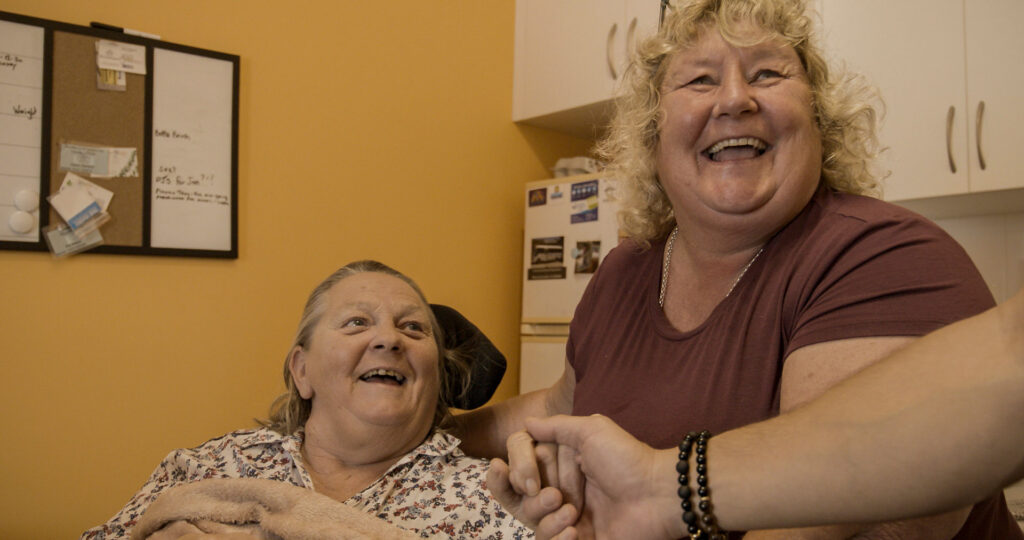Self-care is not just a buzzword, it’s incredibly important for everyone to look after themselves, but even more so if you’re a person providing care for a loved one with an injury, illness or disability. It’s impossible to care for others if we are not well cared for ourselves.
Looking after yourself means you can continue to care for your loved one, while still maintaining a life of your own outside of your caring responsibilities. As they say, it’s impossible to pour from an empty cup, so how do you make sure you’re topping your own cup up to avoid an emotional or physical breakdown?
Whether you are a short-term or long-term carer, self care is essential. Here we look at some of the key areas to look out for when looking out for yourself.
Get emotional support
Do you have someone to turn to if you are feeling stressed and overwhelmed? Take time to destress with family and friends to lighten your load, do it on a regular basis to maintain a balance. Also try peer to peer support groups or forums for a chance to talk to people who are experiencing some of the same things.
Take time out for the things you love
It can be hard when you take on the responsibility of care for another, but try to not get caught up spending all of your time as a carer. You are entitled to have a life outside of your caring duties. Make time for your hobbies and interests – and give your mind and your body a rest. Spend time with loved ones and friends to laugh, and chat and de-stress. Often, we underestimate the toll that caring for a loved one can take on ourselves. Mental and physical fatigue are very real side effects of providing full time (or even part time) care for a person with daily care needs, so make sure you take time out for the things that bring you joy.
Regular respite and help
There is no shame in asking for and accepting help. Whether from other family members or professional respite care, time out is important to maintain your own health and happiness. Respite care is essential for both carers and the cared for. This break can span from a few hours to even days, so that the carer gets a chance to rest and recover, feel refreshed and offer better care over the long term.
Importantly, respite care also gives the patient a break and gives them the opportunity to engage with new and varied people. Professionally provided respite care means your loved one is in the safe and capable hands of a trained carer. Respite care provided by Care1 can provide caregivers with a much-needed break away from the responsibility of caring for a loved one, and the chance to look after themselves as well.
Monitor yourself for stress
Actively look for the possible signs of stress in yourself and combat them before they become too much. Common signs include impatience, difficulty sleeping, loss of appetite, mood swings or a general disinterest in things you usually find enjoyable. These symptoms can indicate your are under too much stress and need to take some time out before it has a material impact on your quality of life.
Set realistic expectations
If you are exhausted all of the time, look at how you can reduce your overall workload and get the help you need – instead of simply digging deep and soldiering on. It is easy to get caught up in the daily caring routine and lose sight of your needs when caring for another. Take a step back and assess whether all the things you are doing on a daily basis are achievable over the long term. And if they are not, seek out the help you need.
Read our blog on the support available for carers.
Stay organised
Being organised helps you to achieve the things that need to be done and removes an element of stress and the unknown from your day-to-day life. There are so many simple and clever ways to stay organised, including smartphone apps that can help you stay on top of everything from medication orders to health appointments.
Eat well and move more
Eat well, try to avoid skipping meals and drink plenty of water. It sounds simple, but these basic activities can make a real impact on your overall health and wellbeing. It’s also these simple things that tend to go out the window when we’re stressed and under pressure. In addition, schedule regular exercise that you enjoy. It could be as simple as walking the dog or going for a swim at the local pool. No matter the activity you choose, it will help realise those feel good endorphins, and keep your body strong – which is key when delivering to the demands of caring for another.
We hope these tips can help you stay on top of your own health and wellbeing so you can continue to care for your loved one – be it for the short or long term. Just remember, no matter your situation, there is always help available. Read our Tips & Advice section for more.


